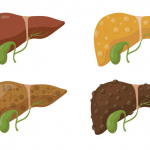I opened my inbox at 5 o’clock in the morning as I prepared to take my fist sip of coffee the other day, and my sleepy eyes fell upon a medical journal article that started like this:
While a major driver of chronic disease burden at the
turn of the century, obesity has been largely eradicated.
With the majority of pregnant women maintaining
healthy weight gain and good nutrition, children are
starting life with better epigenetic risk. A societal reinvestment
in health has resulted in the majority of
Canadian children and adults having more than double
the minimum recommended amount of physical
activity and advanced skills in household management
at school leaving. A holistic understanding of
the root causes of obesity has resulted in better access
to effective mental health and family supports to promote
health. The majority of households have the
skills and resources to access and prepare high quality
food.
Say what?! Now I was certain I was still actually in bed and dreaming… or perhaps catapulted to an alternate universe? So I took a big swig of coffee and kept reading….
The result, more Canadians are healthier,
disability burden has plummeted and the proportion
of the population living with severe obesity continues
to decline. Canada’s dream of universal healthcare
remains alive and well.
Ok now I was good and confused. The last time I checked (like, yesterday), obesity was still highly prevalent, and we were FAR from achieving any of these goals.
Then, I settled on the citation at the bottom of the page:
Current Obesity Reports, 2041
Finally, I understood (with the caffeine now having reached my brain, plus a little adrenaline) that this was a futuristic spoof (and hope) of sorts, designed by authors Denise Cambell-Scherer and Arya Sharma, to get our attention to highlight the importance of having primary care in Canada fully engaged in obesity care and prevention, if we are to have any hope of achieving these goals in the future.
The article goes on to discuss that obesity prevention needs a lifecycle approach, starting in the womb and continuing throughout life. Primary care (ie, family doctors) are in the best position to address this lifelong process that needs to reach out to the population as a whole. However, still less than 50% of family physicians discuss obesity during routine health examinations, with reasons cited being lack of time, resources, and training as to how to approach this often sensitive topic.
So how can family doctors be supported in the management of obesity? The 5As of Obesity have been developed by the Canadian Obesity Network to provide a straightforward way to approach the topic of obesity. Teams of allied health care professionals need to be available and supported by the health care system to manage obesity (similarly to the diabetes world, where care is shared amongst doctors, nurses, dietitians, pharmacists, diabetes educators, and pshcyologists). As the article notes, 7.4 hours of health provider time would be required to deliver all of the current recommended screening and prevention maneuvers (eg nutrition, activity, alcohol etc) – and clearly it is not reasonable for each doctor to see only one patient per day.
Developing these teams is not a small task. As we learn how to best educate health care professionals and figure out how to build teams into well functioning units that can help people with their weight struggles, resources to do this are still scarce and eclipsed by the enormity of the problem. Empowering patients with useful and evidence-based educational resources is crucial as well – and often hard to find amongst all the garbage diet info that plagues the internet. (I try to do my part by writing this blog for the last 8 years!)
At the Canadian Obesity Network, we are doing everything we can to reach these goals, but the entire health care profession and society as a whole needs to be fully on board if we are going to be successful in achieving these goals.












